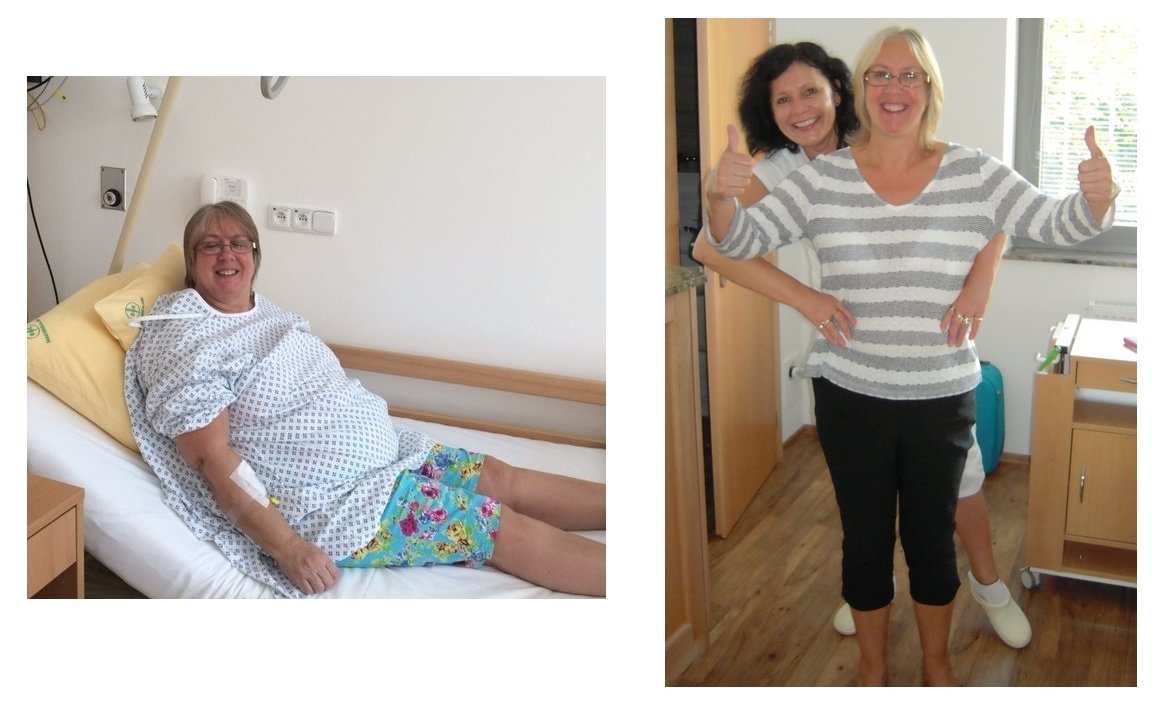Navigating the world of How to Find the Best Clinics for Weight Loss Surgery in Europe can feel overwhelming, especially for healthcare professionals seeking reliable information. With the increasing demand for bariatric procedures, it becomes essential to identify the Best Weight Loss Surgery Clinics in Europe that meet high standards of care and expertise. This comprehensive guide delves into the nuances of Finding Clinics for Bariatric Surgery Europe, emphasizing critical factors such as clinic credentials, patient testimonials, and the diverse Weight Loss Surgery Options in European Clinics. By understanding How to choose a weight loss surgery clinic, healthcare providers can confidently guide their patients towards Top weight loss surgery options in Europe. From evaluating Top Weight Loss Surgery Clinics in Europe to offering practical Tips for Choosing Weight Loss Surgery Clinics, this post serves as an invaluable resource for making informed decisions in the weight loss surgery landscape.
Understanding Weight Loss Surgery: A Brief Overview
Weight loss surgery, also known as bariatric surgery, encompasses a variety of surgical procedures designed to help individuals achieve significant weight loss. This intervention is particularly beneficial for those who have not had success with traditional weight loss methods, such as diet and exercise. The increasing prevalence of obesity in Europe has made best weight loss surgery clinics in Europe essential for patients seeking effective solutions.
Key Types of Weight Loss Surgery
Here is an overview of the primary types of weight loss surgeries offered at various clinics:
| Procedure | Description | Who it’s For |
|---|---|---|
| Gastric Bypass | This procedure involves creating a small stomach pouch and rerouting intestines to limit food intake and calorie absorption. | Patients with a BMI over 40 or 35 with obesity-related health issues. |
| Sleeve Gastrectomy | A significant part of the stomach is removed to create a sleeve-like structure, which reduces hormone production that triggers hunger. | Suitable for a broad range of morbidly obese patients. |
| Adjustable Gastric Band | An inflatable band is placed around the upper stomach to create a small pouch, which limits food consumption. | Ideal for patients who prefer a reversible and adjustable procedure. |
| Biliopancreatic Diversion | This complex procedure involves removing a large part of the stomach and rerouting the intestines. | Typically considered for patients with a very high BMI or metabolic syndrome. |
Benefits and Considerations
Weight loss surgery options in European clinics can lead to numerous benefits, including:
- Improved overall health
- Reduction in obesity-related illnesses (e.g., diabetes, hypertension)
- Enhanced quality of life
However, surgery also involves risks and requires:
- Pre-operative evaluations
- A commitment to lifestyle changes
- Regular follow-up care for maintaining results
Healthcare professionals considering referring patients for bariatric surgery in Europe should be well-versed in these procedures, their eligibility criteria, and the necessary pre-surgical assessments. Understanding the nuances of weight loss surgery is fundamental to how to choose a weight loss surgery clinic and ensures that patients are matched with the appropriate treatment options and support systems.

Factors to Consider When Searching for Clinics
When embarking on the search for the best clinics for weight loss surgery, healthcare professionals must meticulously evaluate various critical factors that can significantly impact patient outcomes. Here are several essential considerations:
1. Accreditation and Certification
- Importance: Ensures that the clinic meets specific medical standards and follows safe practices.
- Check for: Certificates from recognized healthcare organizations, such as ISO or JCI.
2. Surgeon Qualifications
- Credentials: Review the surgeon’s educational background, years of experience, and specific training in bariatric surgery.
- Memberships: Affiliation with professional organizations, such as the International Federation for the Surgery of Obesity and Metabolic Disorders (IFSO), can signify dedication to the field.
3. Patient-to-Surgeon Ratio
- Consideration: A lower ratio often indicates more personalized attention.
- Ideal Range: Look for clinics where surgeons handle a manageable number of cases to ensure quality care.
4. Variety of Surgical Options
- Range of Procedures: Evaluate if the clinic offers various techniques, such as gastric bypass, sleeve gastrectomy, or adjustable gastric banding.
- Tailored Treatments: Ensure that the clinic provides options that suit different patient needs.
5. Support Services
- Pre- and Post-Op Care: Consider if the clinic offers comprehensive support, including nutritional counseling, psychological support, and follow-up care.
- Duration of Support: Long-term follow-up programs indicate dedication to patient health.
6. Location and Accessibility
- Travel Considerations: A clinic’s location can influence patient decisions. Proximity to family and friends can enhance recovery and support.
- Transport Options: Easy access to transport links can facilitate visits for pre-and post-operative consultations.
Key Considerations Table
| Factor | Why It Matters |
|---|---|
| Accreditation | Ensures compliance with medical standards and safety protocols. |
| Surgeon Qualifications | Affects surgical success rates and patient safety. |
| Patient-to-Surgeon Ratio | A lower ratio often leads to better patient outcomes. |
| Variety of Surgical Options | Allows for personalized treatment tailored to individual needs. |
| Support Services | Critical for recovery and long-term weight management success. |
| Location and Accessibility | Convenience plays a role in patient satisfaction and recovery adherence. |
By carefully weighing these factors and utilizing resources such as Best Weight Loss Surgery Clinics in Europe, healthcare professionals can effectively guide patients in making informed decisions. They can also leverage their knowledge on Finding Clinics for Bariatric Surgery in Europe to better navigate this complex area, ensuring that patients are well-supported throughout their surgical journey.
Top Weight Loss Surgery Clinics in Europe
When seeking how to find the best clinics for weight loss surgery in Europe, it is crucial to identify leading facilities that meet high standards of care and patient support. Europe is home to several renowned establishments that specialize in bariatric surgery, offering a range of innovative procedures and exceptional patient care.
Notable Clinics to Consider
- Bariatric Surgery Clinic in Turkey
- Offers a wide range of weight loss surgery options in European clinics including gastric bypass and sleeve gastrectomy.
- Equipped with advanced technologies and skilled surgical teams known for their expertise.
- Cleveland Clinic London
- This clinic is part of the prestigious Cleveland Clinic network, recognized globally for its comprehensive approach to patient care.
- They provide personalized weight loss programs with extensive follow-ups.
- Obesity Clinic at the Charité – Universitätsmedizin Berlin
- One of Europe’s largest university hospitals with a focus on obesity treatment.
- The facility offers multidisciplinary obesity management, ensuring thorough patient assessments.
- NewMe Health in Spain
- Highly rated for its patient-centric approach, offering a range of minimally invasive surgeries.
- Offers packages that include pre-operative assessments and post-operative care.
- Health Travel Surgery in Czech Republic
- Known for value-driven packages that include surgery and accommodation.
- Boasts strong credentials and positive patient feedback.
Comparison of Top Clinics
| Clinic Name | Location | Specialties Offered | Patient Ratings |
|---|---|---|---|
| Bariatric Surgery Clinic | Turkey | Gastric Bypass, Sleeve Gastrectomy | 4.5/5 |
| Cleveland Clinic London | UK | Multiple Procedures | 4.7/5 |
| Charité – Universitätsmedizin | Berlin, Germany | Comprehensive Obesity Management | 4.6/5 |
| NewMe Health | Spain | Minimally Invasive Surgeries | 4.8/5 |
| Health Travel Surgery | Czech Republic | Value-driven Bariatric Packages | 4.4/5 |
Each of these facilities embodies excellence in surgical practice, making them stand out as best weight loss surgery clinics in Europe. Healthcare professionals must take the time to evaluate these options in consideration of factors such as patient outcomes, facility amenities, and aftercare programs.
In selecting the top weight loss surgery clinics in Europe, it is necessary to not only look at medical expertise but also the patient experience. Comprehensive research and consultations will aid healthcare professionals in guiding their patients effectively as they navigate this life-changing decision.
How to Research Clinics for Bariatric Surgery
Researching clinics for bariatric surgery requires a comprehensive approach to ensure the best outcomes for patients seeking weight loss solutions. Healthcare professionals need to gather reliable information to guide their patients effectively. Here are actionable steps to take when finding clinics for bariatric surgery Europe:
- Utilize Online Resources
- Begin with reputable medical websites. Organizations such as the International Federation for the Surgery of Obesity and Metabolic Disorders (IFSO) provide lists of accredited clinics.
- Explore health-related forums and communities where past patients discuss their experiences.
- Check Accreditation
- Ensure the clinic holds relevant certifications, such as from national health authorities or international accrediting bodies. Look for certifications indicating adherence to safety and performance standards.
- Assess the Medical Staff
- Research the qualifications of the surgical team, including the surgeons’ experience with bariatric procedures. Peer-reviewed articles or public profiles may detail their expertise in performing weight loss surgeries.
- Review Clinic Amenities
- Evaluate the facilities available at the clinic. Consider factors such as technology used during procedures, recovery room conditions, and overall patient care practices.
- Examine Success Rates
- Request statistics on patient outcomes, including rates of complications and weight loss success. This information is crucial for evaluating the effectiveness of top weight loss surgery clinics in Europe.
Table: Key Points for Researching Clinics
| Criteria | Description |
|---|---|
| Online Resources | Utilize accredited websites and patient forums. |
| Accreditation | Verify national and international certifications. |
| Medical Staff | Research surgeons’ qualifications and experience. |
| Facility Amenities | Assess technology and recovery conditions. |
| Success Rates | Inquire about patient outcomes and complication rates. |
By pursuing these strategies, healthcare professionals will be equipped with the information necessary to discern the best reviews for weight loss surgery clinics Europe. This diligent research process will pave the way for informed recommendations, allowing patients to make educated decisions regarding their weight loss surgery journey. Implementing the above guidelines also helps ensure favorable experiences and outcomes for patients exploring weight loss surgery options in European clinics.

Evaluating Clinic Credentials and Certifications
When it comes to selecting a facility for weight loss surgery, evaluating the clinic’s credentials and certifications is crucial for ensuring patient safety and successful outcomes. How to choose a weight loss surgery clinic necessitates a comprehensive understanding of the medical standards and organizational accreditations that clinics need to adhere to. This subset of research can greatly influence the decision-making process.
Key Credentials to Consider
- Accreditation Bodies: Check if the clinic is accredited by reputable organizations such as the International Federation for the Surgery of Obesity and Metabolic Disorders (IFSO) or the American College of Surgeons (ACS). Accredited clinics abide by strict protocols, ensuring they meet high-quality standards.
- Surgeon’s Qualifications: Evaluate the qualifications of the surgeons performing the procedures. They should have specialized training in bariatric surgery, board certification, and extensive experience. It’s advisable to determine their success rates and complication rates as well.
- Facility Certifications: Look for certifications like ISO (International Organization for Standardization), which indicates adherence to international quality management standards. This assures patients that the clinic consistently maintains a high level of care.
Evaluation Table of Important Credentials
| Credential Type | Importance | How to Verify |
|---|---|---|
| Accreditations | Ensures adherence to best practices | Check the clinic’s website or official bodies |
| Surgeon’s Board Certified | Indicates surgeon’s competency | Verify through professional medical associations |
| Facility Certifications | Reflects safety protocols | Research on healthcare accreditation databases |
Additional Considerations
Besides the formal credentials, it is equally important to assess the following:
- Clinical Trials: Determine if the clinic participates in any research or clinical trials, which may showcase their commitment to ongoing advancement in bariatric techniques.
- Reputation in the Community: Research local affiliations, collaborations, or partnerships with respected health organizations that can further verify the clinic’s credibility.
By diligently finding clinics for bariatric surgery in Europe with solid credentials and certifications, healthcare professionals can significantly enhance their recommendations and ensure that patients are presented with the best weight loss surgery clinics in Europe. This level of due diligence not only safeguards patient outcomes but also builds trust and fosters a positive healthcare environment.
Patient Reviews and Testimonials: What to Look For
When seeking out the Best Weight Loss Surgery Clinics in Europe, patient reviews and testimonials play a crucial role in decision-making. They provide invaluable insights about the experiences of previous patients, which can guide healthcare professionals in recommending clinics. Here are several key elements to consider when evaluating these testimonials:
Authenticity of Reviews
- Source Verification: Look for reviews from multiple platforms. Trusted medical websites and healthcare forums often offer patient feedback. Websites like RealSelf or Healthgrades can provide credible testimonials.
- Filtering Out Fake Reviews: Pay attention to overly positive or overly negative reviews. Genuine testimonials typically detail specific experiences, including the surgery process, recovery, and post-operative support.
Content of Testimonials
- Surgical Outcomes: Focus on patients discussing their weight loss results and overall satisfaction with the procedures they underwent. This includes both short-term and long-term results.
- Quality of Care: Reviews should mention the professionalism of the medical staff, including surgeons and nursing staff. Look for comments on how attentive the clinic was to patient concerns, including post-operative care.
- Facility Conditions: Assess whether previous patients describe the cleanliness and comfort of the facility, which directly affects patient experience before and after surgery.
Volume of Reviews
- Significance of Quantity: A clinic with a large number of reviews can indicate consistency in service quality. Compare clinics by the number of patient testimonials to gauge their general reputation.
Geographic Considerations
- Local Insights: Patient reviews can also provide insights into the quality of care within specific regions of Europe. This is particularly important for healthcare professionals as they can gauge the clinics’ performance based on regional standards.
Highlighting Patient Stories
Understanding individual patient journeys is essential. As one former patient recounted, “The clinic not only changed my appearance; the compassionate care I received made all the difference. I felt supported at every step.”
In summary, comprehensive evaluation of patient reviews and testimonials is critical when searching for clinics and Finding Clinics for Bariatric Surgery in Europe. By considering authenticity, content, volume, and geographic relevance, healthcare professionals can make informed recommendations that align with best practices in patient care.
Comparing Weight Loss Surgery Options Available
When considering weight loss surgery, it’s crucial to evaluate the different types of procedures offered at various clinics. The effectiveness, risks, and potential outcomes can vary significantly among them, and understanding these distinctions can lead to better-informed decisions for healthcare professionals and their patients.
Key Weight Loss Surgery Options
Here is a breakdown of the most common weight loss surgery options in European clinics:
| Surgery Type | Description | Average Weight Loss | Risks and Considerations |
|---|---|---|---|
| Gastric Bypass | Reduces the stomach’s size and alters digestion. | 60-80% excess weight loss | Nutritional deficiencies; complications |
| Sleeve Gastrectomy | Removes a portion of the stomach to limit intake. | 50-70% excess weight loss | GERD; potential for sleeve dilation |
| Adjustable Gastric Band | Places a band around the stomach to control food intake. | 40-50% excess weight loss | Band slippage; need for adjustments |
| Biliopancreatic Diversion | Combines sleeve surgery with intestinal bypass. | 70-90% excess weight loss | More complex; higher risk of complications |
How to Choose the Right Procedure
- Procedure Goals: Understand the main objectives of the surgery. Some surgeries cater specifically to rapid weight loss, while others may focus on long-term maintenance.
- Patient Health Profile: Assess the patient’s overall health, existing medical conditions, and history to determine which option minimizes risks.
- Lifestyle Considerations: Different procedures necessitate various dietary changes and lifestyle modifications post-surgery. Discuss these factors with the patient to ensure they can commit to the required changes.
- Long-Term Outcomes: Investigate the long-term effectiveness of the procedures. For instance, studies show that Gastric Bypass often leads to better long-term weight loss compared to Adjustable Gastric Bands.
- Clinic Expertise: It is essential to evaluate the clinic’s experience and specializations in specific procedures. Some clinics may have a more robust track record with certain surgeries, impacting both success rates and patient satisfaction.
In summary, when finding clinics for bariatric surgery in Europe, healthcare professionals should carefully compare each weight loss surgery option available. By doing so, they can make informed recommendations that align with patients’ needs and expectations, ultimately improving healthcare outcomes.

The Importance of Consultations and Follow-ups
When navigating the journey of weight loss surgery, consulting with qualified professionals and ensuring consistent follow-up appointments is crucial for both patient safety and overall satisfaction. The significance of initial consultations cannot be overstated; they serve as a foundational step in how to choose a weight loss surgery clinic effectively.
During the consultation process, potential patients should accomplish several key goals:
- Assessing Suitability: Health professionals should conduct a thorough evaluation of the patient’s medical history and current health status, determining if they are candidates for weight loss surgery options in European clinics.
- Discussing Surgical Procedures: A reputable clinic will explain various available procedures, including but not limited to gastric bypass, sleeve gastrectomy, and adjustable gastric banding. Clarity on each procedure allows patients to make informed decisions.
- Understanding Risks and Benefits: Healthcare professionals should advocate for transparency regarding potential risks and benefits, ensuring that patients are fully aware of what to expect pre- and post-surgery.
Follow-up care after the surgery is equally important:
- Monitoring Progress: Regular follow-up appointments allow healthcare providers to monitor the patient’s progress closely, identify any complications early, and adjust dietary plans or medications as needed.
- Psychological Support: Transitioning to a new lifestyle post-surgery can be challenging; thus, ongoing psychological support is essential in helping patients adapt.
- Nutritional Guidance: Professional dietary management post-surgery can prevent malnutrition and ensure sustainable weight loss.
Key Considerations for Consultations and Follow-ups
| Aspect | Details |
|---|---|
| Initial Consultation | Establish patient-physician rapport; evaluate health history |
| Post-Surgery Follow-Up | Schedule regular assessments to monitor health and progress |
| Nutritional Counseling | Provide tailored dietary plans for sustainable recovery |
| Psychological Support | Access to therapy or support groups for mental well-being |
By prioritizing consultations and follow-ups, patients can significantly enhance their surgical outcomes and quality of life. This holistic approach plays a critical role in finding clinics for bariatric surgery in Europe and ensures that patients receive comprehensive care throughout their weight loss journey. Therefore, the expertise of healthcare professionals is pivotal in guiding patients through each step, ultimately contributing to better success rates and patient satisfaction in the long term.
Costs and Insurance Considerations for Surgery
When exploring how to find the best clinics for weight loss surgery in Europe, understanding the financial aspects is crucial. Costs can vary significantly across different clinics and countries, making it essential for healthcare professionals to convey accurate information to their patients.
Factors Influencing Costs
- Type of Procedure:
- Different bariatric procedures, such as gastric bypass, sleeve gastrectomy, or adjustable gastric banding, have varying costs. Usually, more complex surgeries may come with a higher price tag.
- Geographic Location:
- The country and city where the clinic is located can greatly influence the pricing. For example, clinics in Western Europe may charge more than those in Eastern Europe while maintaining similar quality standards.
- Hospital Facilities:
- The quality and reputation of a clinic can also affect the cost. High-end facilities with advanced medical technology and highly qualified staff may command higher fees.
Insurance Coverage
- Many European countries have different policies regarding weight loss surgery options in European clinics and whether these are covered under national health systems or private insurance plans. Here are some common considerations:
- Preauthorization Requirements: Patients should ensure they understand any preauthorization processes required by their insurance.
- Network Providers: It may be advantageous to choose clinics within the insurance provider’s network to minimize out-of-pocket expenses.
Cost Comparison Table
| Procedure Type | Average Cost (Europe) | Insurance Coverage |
|---|---|---|
| Gastric Bypass | €8,000 – €14,000 | Often covered with criteria |
| Sleeve Gastrectomy | €6,000 – €12,000 | Varies (check with provider) |
| Adjustable Gastric Banding | €4,000 – €10,000 | Often requires prior authorization |
According to experts, “Having a clear idea of potential costs and available financing options is paramount in the decision-making process.” Here are some tips on how to choose a weight loss surgery clinic with a focus on cost:
- Obtain Detailed Quotes: Request itemized estimates from several clinics to ensure transparency.
- Evaluate Inclusive Packages: Some clinics may offer packages that cover pre-operative consultations, surgery, and post-operative follow-ups, which can provide overall savings.
- Consider Hidden Costs: Be aware of potential hidden costs, such as additional therapies or extended hospital stays.
By taking these financial considerations into account, healthcare professionals can better guide their patients in making informed decisions regarding bariatric surgery in Europe.
Tips for Making the Final Decision on a Clinic
Choosing the right clinic for weight loss surgery is a crucial aspect of ensuring successful outcomes for patients. With numerous factors to consider, healthcare professionals can guide their clients through the decision-making process. Here are tips for choosing weight loss surgery clinics that can help refine this important choice:
- Assess Alignments with Patient Needs:
- Evaluate the specialties of each clinic. Some may focus on gastric bypass, while others excel in laparoscopic sleeve gastrectomy or adjustable gastric banding.
- Consider any existing medical conditions of the patient that may affect their surgery options.
- Evaluate Resources and Facilities:
- Investigate the clinic’s technology and resources. Modern facilities that are well-equipped with the latest surgical technology can enhance safety and efficacy.
- Review the availability of post-operative care resources, including nutritionists and personal trainers.
- Review Staff Qualifications:
- Check the qualifications of the surgical team, including board certifications and specialized training in bariatric surgery.
- Ensure that support staff, including nurses and dietitians, are knowledgeable about weight loss procedures.
- Analyze Post-operative Support:
- Look for clinics that provide comprehensive post-operative support, including regular follow-ups and counseling.
- Investigate availability of support groups and community resources for long-term weight management.
- Check Regulatory Compliance:
- Ensure that the clinic adheres to European healthcare regulations and is accredited by relevant health authorities or organizations.
- Best Reviews for Weight Loss Surgery Clinics Europe can be instrumental in verifying these compliance details.
- Consider Costs vs. Benefits:
- Weigh the costs of surgery against the expected outcomes and long-term support. It’s essential to review the financial implications, including insurance coverage as well as what is included in the quoted price.
- Encourage Patients to Trust Their Instincts:
- Patients should feel comfortable and confident in their selected clinic. Encourage them to trust their instincts and choose a clinic where they feel welcomed and heard.
By incorporating these tips for making the final decision on a clinic, healthcare professionals can equip their patients with the necessary information to choose wisely. Ultimately, it’s about finding the best weight loss surgery clinics in Europe that meet individual needs while ensuring a safe and effective surgical experience.

Frequently Asked Questions
What factors should be considered when choosing a clinic for weight loss surgery in Europe?
When choosing a clinic for weight loss surgery in Europe, several crucial factors should be considered. Firstly, patients should investigate the clinic’s accreditation and certification, ensuring it meets the necessary health regulations. Patient reviews and testimonials provide insight into the experiences of previous patients. Additionally, the expertise of the medical team, including their qualifications, experience, and specialization in bariatric surgery, is vital. The range of surgical options offered, post-operative care, and support programs further enhance a clinic’s appeal, while location and logistical considerations such as travel and accommodation should also be carefully evaluated.
How can I verify the credentials of a weight loss surgery clinic in Europe?
Verifying the credentials of a weight loss surgery clinic in Europe is an essential step for potential patients. It begins with checking if the clinic is accredited by recognized healthcare authorities or organizations, such as the International Federation for the Surgery of Obesity and Metabolic Disorders (IFSO). Patients can also inquire about the certification of the surgeons, ensuring they are board-certified in bariatric surgery. Furthermore, reviewing the clinic’s success rates, patient outcomes, and any historical medical malpractice issues can provide deeper insights into the clinic’s reputation and reliability.
What are the common types of weight loss surgeries available in European clinics?
European clinics offer a variety of weight loss surgery options tailored to individual needs. The most common types include gastric bypass, where a small stomach pouch is created and connected to the small intestine; gastric sleeve, which involves removing a portion of the stomach to reduce its size; and adjustable gastric banding, a less invasive option that involves placing a band around the upper part of the stomach. Other procedures, such as biliopancreatic diversion with duodenal switch, may also be available, depending on the clinic’s expertise and the patient’s specific weight loss goals.
What should I expect during the recovery process after weight loss surgery?
The recovery process after weight loss surgery varies depending on the type of procedure performed but generally includes several common stages. Initially, patients may experience pain and discomfort, which is managed with prescribed medications. A liquid diet is typically recommended for the first few weeks, gradually progressing to soft foods before introducing solid foods. Follow-up appointments are essential for monitoring recovery and dietary progress. Emotional support is equally important, as patients may encounter challenges in adjusting to their new lifestyle. Long-term success relies on adhering to a balanced diet, regular physical activity, and ongoing medical guidance.

